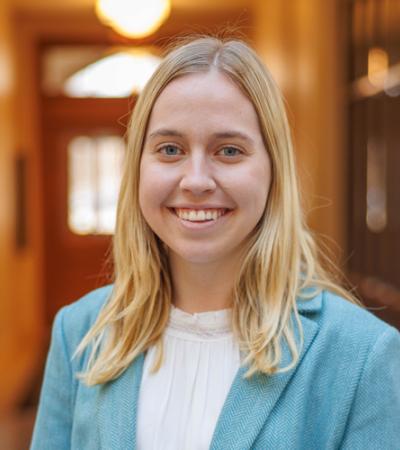Sowing Success: An Exploratory Study of Refugee Urban Farms in Kansas City
Kellogg/Kroc Undergraduate Research Grants
Final Report:
This summer, I worked as a Case Aide for the Reception and Placement team in the Refugee Services division at Catholic Charities of Northeast Kansas City. As an anthropology major and international development studies and Latino studies minor, I wanted to immerse myself in a cross-cultural environment that worked towards promoting human dignity and development of all people. Due to the pandemic, I shifted my interests to align with a current global trend in a domestic environment– the growing worldwide refugee crises. I chose to focus on the resettlement process in my hometown of Kansas City. Upon initial research, I noticed that many governmental sources and existing literature focused on employment as the main indicator of success. From this observation, I developed a broad research question surrounding how refugees experience social integration during the resettlement process.
From the start of the summer, I was thrown into a rewarding, yet chaotic, process of new arrivals and helping to facilitate the R&P agenda. As I started my position, I also became a volunteer on the weekends for the New Roots for Refugees agricultural training program. This program is a joint venture between Catholic Charities and local non-profit Cultivate KC. During my first week, my research shifted to focus on this experience and topic of refugee farming. I became interested in how agricultural training programs fostered self-sufficiency and integration into host communities.
My research is rooted in ethnography and includes observations and interviews with different stakeholders involved in New Roots. Every weekend, I volunteered to help first year farmers sell at local farmers markets. I picked them up from the community garden, loaded the truck and we drove to the market. During this time, I recorded observations. Additionally, throughout the summer, I interviewed farmers, graduates and staff members affiliated with the program. I wanted to learn more about motives for joining the program and what roles agriculture and the community garden play in their overall livelihoods and integration into American life. I hope to formulate policy recommendations that explore the future role of urban farming programs and agricultural employment and entrepreneurship in the resettlement process for newly arrived and established refugees.
During my research, I gained valuable information about motivation for starting their farms, challenges during the process and goals for the future. Almost all of my interviews took place at the farm, which helped the farmers feel more comfortable and created a casual setting. Before I even asked for an interview, I made sure to greet all the farmers every time I saw them. I think these simple greetings helped the refugees understand that I really cared about their businesses and wanted to learn about their experiences. When I worked at the farmers markets, I was able to gain insight into how the participants interacted with their customers and how the market community received the refugee booths. In addition, I spent time after work hanging out at the farm and learning more about the program. During these informal times, I was able to really see how the farmers worked on their farm and interacted with each other. For example, one farmer always brought her children to her farm with her because it was summer. I learned that her children became part of the community like their mom, just by being present.
Throughout my research, I faced many logistical challenges. Since I switched my project theme after I was in the field, I had limited time to arrange a translator. Almost all of my interviewees spoke little to no English, so I needed an interpreter to complete my project. I was able to use one farmer who was bilingual for most of my interviews. However, I ran into a little more trouble when I attempted to interview three Somali farmers. There were no Somali bilingual farmers or interpreters that Catholic Charities typically uses. I also reached out to other local organizations to see if they had any interpreters, but I received no response. I decided to try and use an interpretation app to complete the interviews but encountered poor connection and audio difficulties. Ultimately, I had to forgo these interviews which I still feel could have added immense value to my project. Another challenge I faced was the challenge of narrowing down my research focus. The process of refugee resettlement is a complex journey that involves many different stakeholders, experiences and feelings. Additionally, since my research is rooted in anthropology, I needed to start broad and observe first before I could develop any interview questions. I felt like I needed to prepare my interview plans and questions but needed to remind myself to slow down and really analyze what I am seeing through my observations. Making this conscious effort went against my natural instincts but taught me how to embody anthropological processes in the field.
As I write my capstone, I am exploring the feasibility of expanding these programs to include more economic diversity for refugees upon resettlement. Future policy could shift to include more resettlement in agricultural areas or support more urban agriculture, an increasingly popular field. I am also using this research to support my Anthropology thesis. For that project, I am looking at how refugees experience agriculture in the United States more broadly and how farming intersects with self-sufficiency. I hope to pull out broader themes about identity and community. Overall, although my project shifted many times throughout last year, I think I ended the summer with valuable insights into an agricultural training program in Kansas City. I learned about how to conduct research with non-English speakers and the various challenges and rewards that accompany the process.






